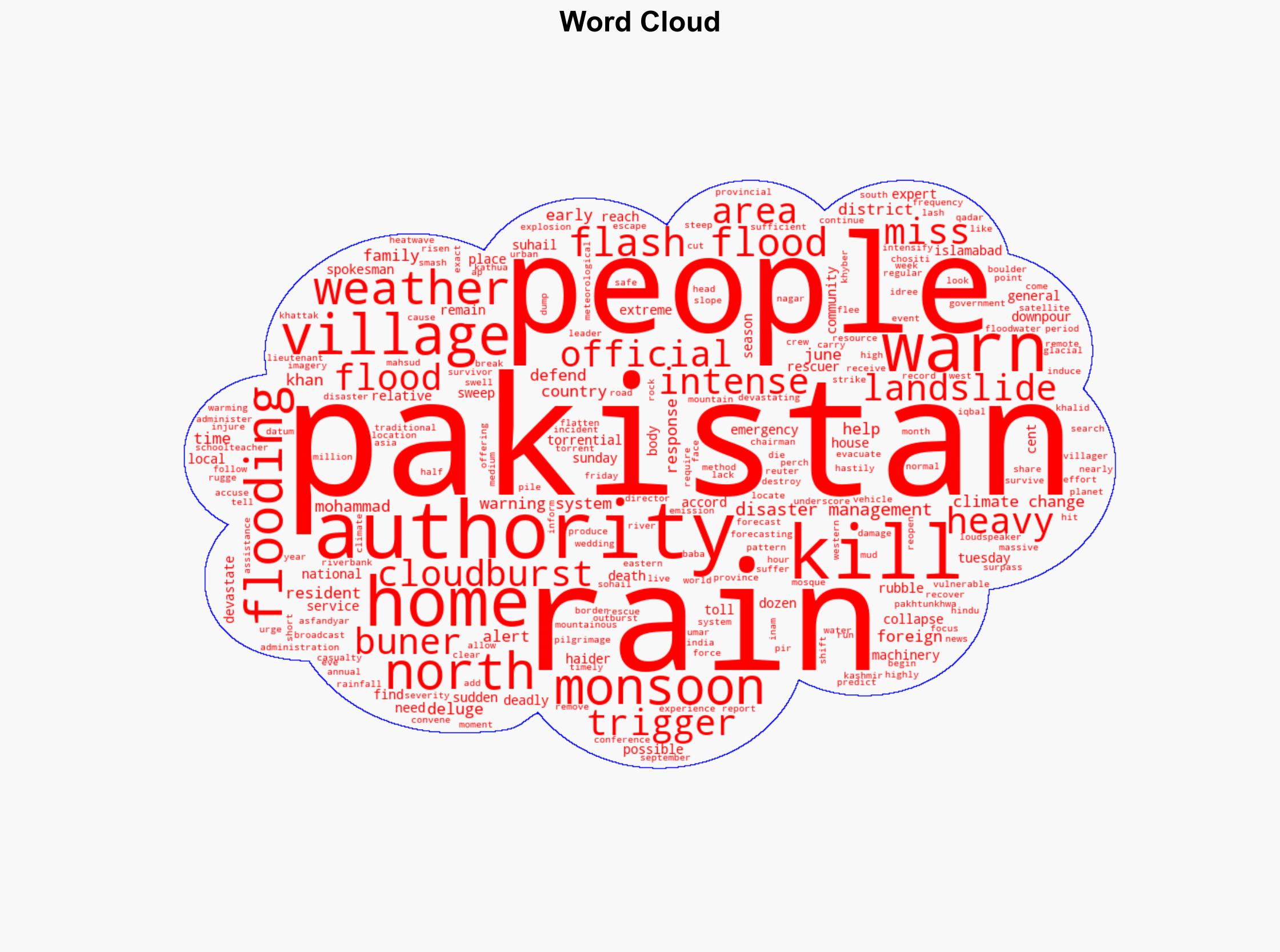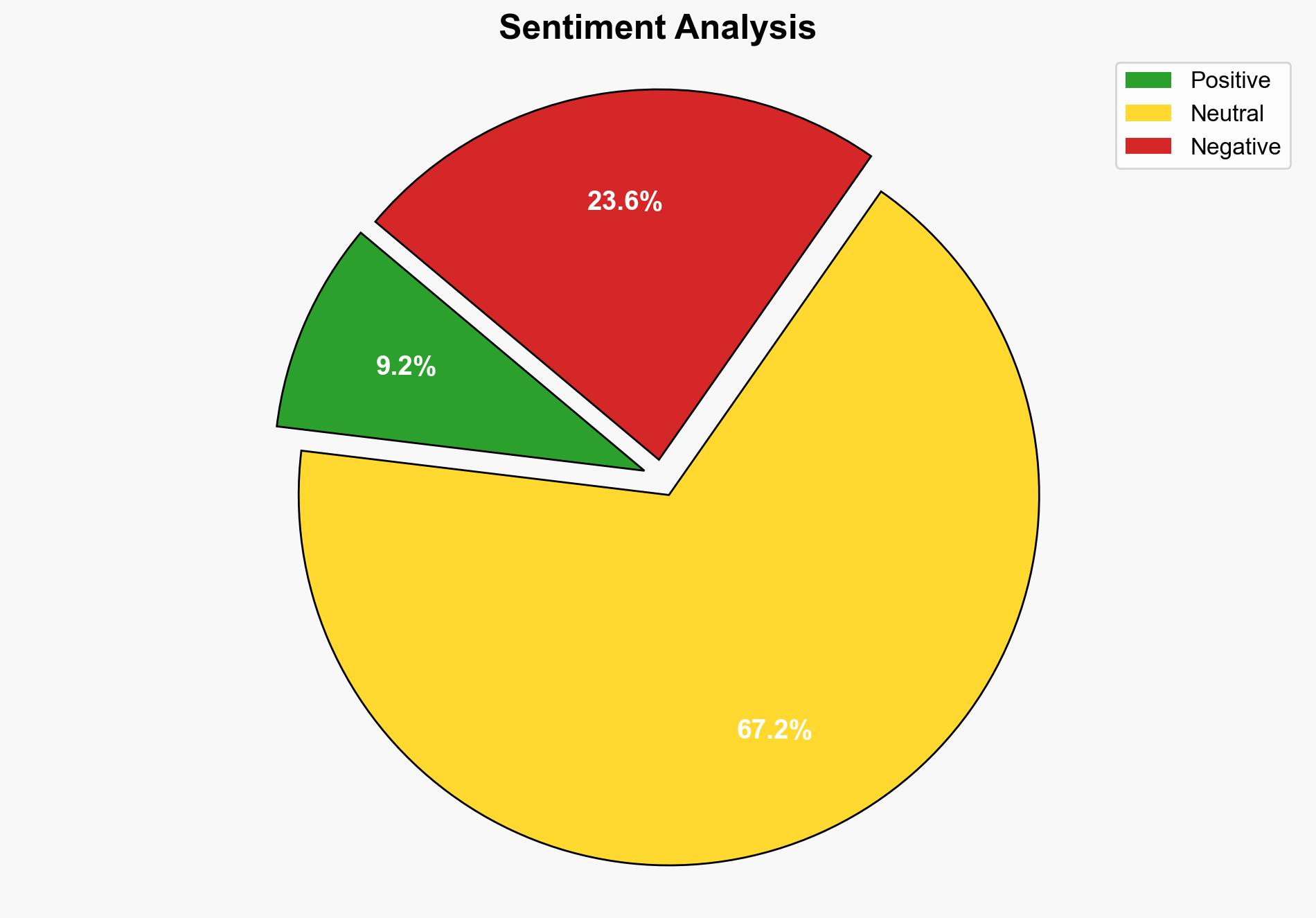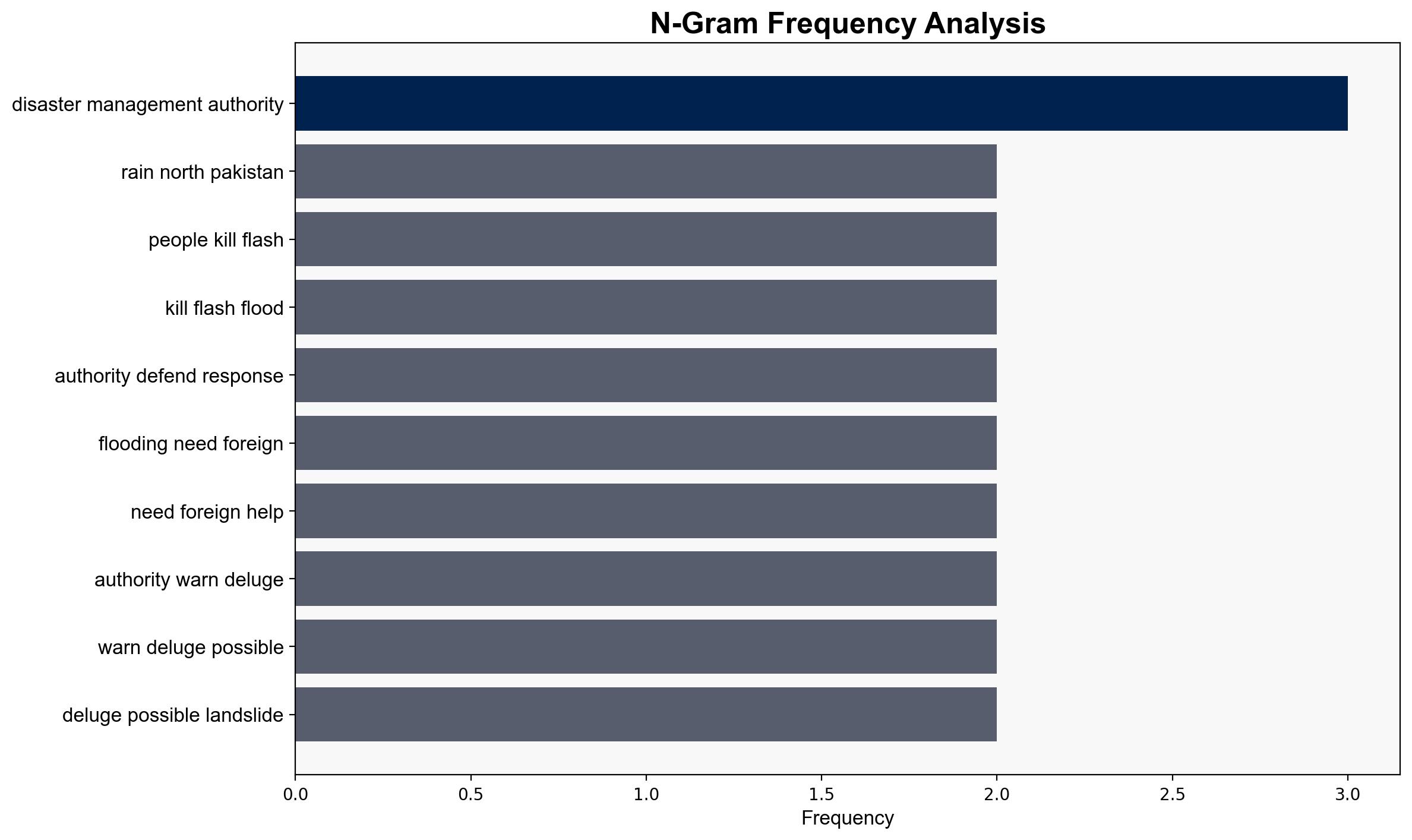Pakistan defends flood response after hundreds killed – ABC News (AU)
Published on: 2025-08-17
Intelligence Report: Pakistan defends flood response after hundreds killed – ABC News (AU)
1. BLUF (Bottom Line Up Front)
The most supported hypothesis is that Pakistan’s government is prioritizing a narrative of self-sufficiency in disaster response to maintain national pride and political stability, despite potential shortcomings in their response capabilities. Confidence level: Moderate. Recommended action includes international monitoring and support offers to ensure effective disaster management and humanitarian aid.
2. Competing Hypotheses
1. **Hypothesis A**: Pakistan’s government is genuinely capable of handling the flood crisis without foreign assistance, as claimed by officials.
2. **Hypothesis B**: Pakistan’s government is overstating its disaster response capabilities to avoid perceived dependency on foreign aid, potentially compromising effective crisis management.
Using the Analysis of Competing Hypotheses (ACH) 2.0, Hypothesis B is better supported. The insistence on not needing foreign aid, despite significant casualties and infrastructure damage, suggests a potential overstatement of capabilities.
3. Key Assumptions and Red Flags
– **Assumptions**: Hypothesis A assumes that local resources and systems are adequate for the crisis. Hypothesis B assumes political motives behind the refusal of foreign aid.
– **Red Flags**: Lack of detailed evidence on the effectiveness of local response efforts. Contradictions between official statements and on-ground realities, such as missing early warning systems and inadequate evacuation measures.
– **Blind Spots**: Potential underreporting of needs or damages to maintain a controlled narrative.
4. Implications and Strategic Risks
– **Patterns**: Increasing frequency of extreme weather events linked to climate change, stressing local disaster management systems.
– **Cascading Threats**: Continued inadequate response could lead to humanitarian crises, economic strain, and social unrest.
– **Potential Escalation**: Failure to manage the crisis effectively could erode public trust and lead to political instability.
5. Recommendations and Outlook
- Encourage international organizations to offer technical support and resources discreetly to avoid political tensions.
- Develop a collaborative regional disaster response framework to enhance preparedness and resilience.
- Scenario Projections:
- Best: Effective local response with international technical support leads to improved disaster management systems.
- Worst: Continued refusal of aid results in a humanitarian crisis and political instability.
- Most Likely: Partial acceptance of international aid under diplomatic pressure, leading to gradual improvement in response capabilities.
6. Key Individuals and Entities
– Mohammad Suhail
– Inam Haider
– Asfandyar Khan Khattak
– Mohammad Iqbal
– Idree Mahsud
7. Thematic Tags
national security threats, disaster management, climate change, regional stability




